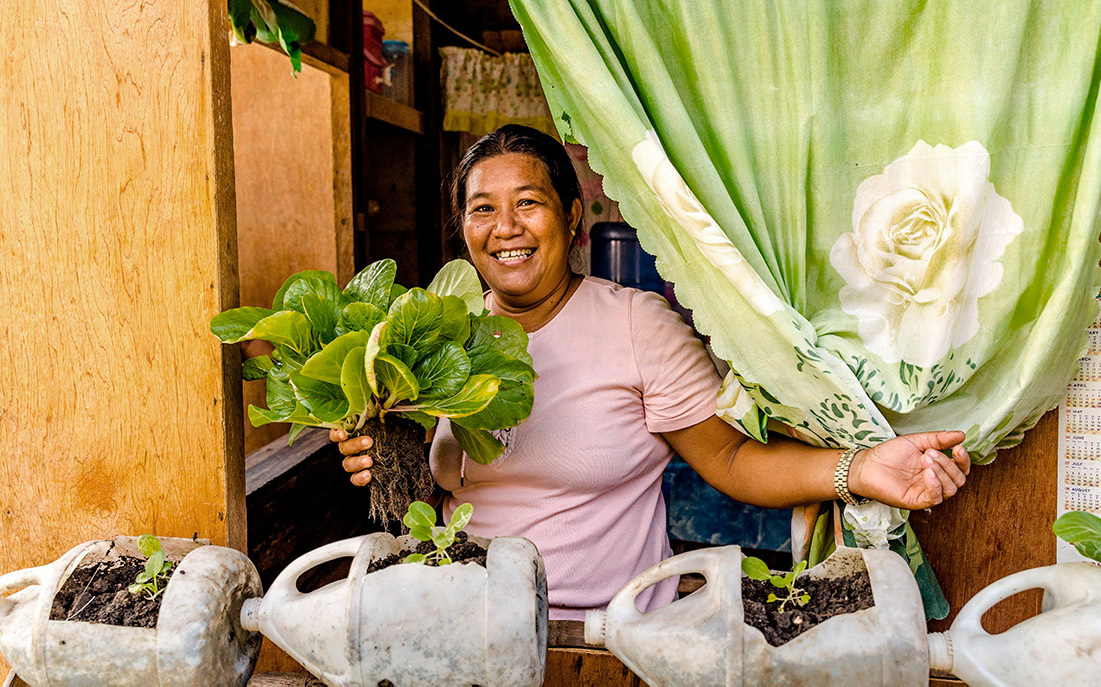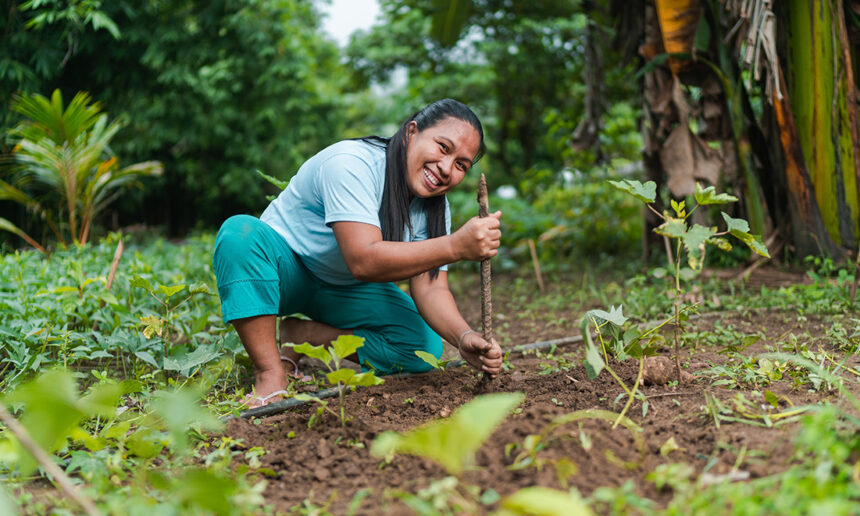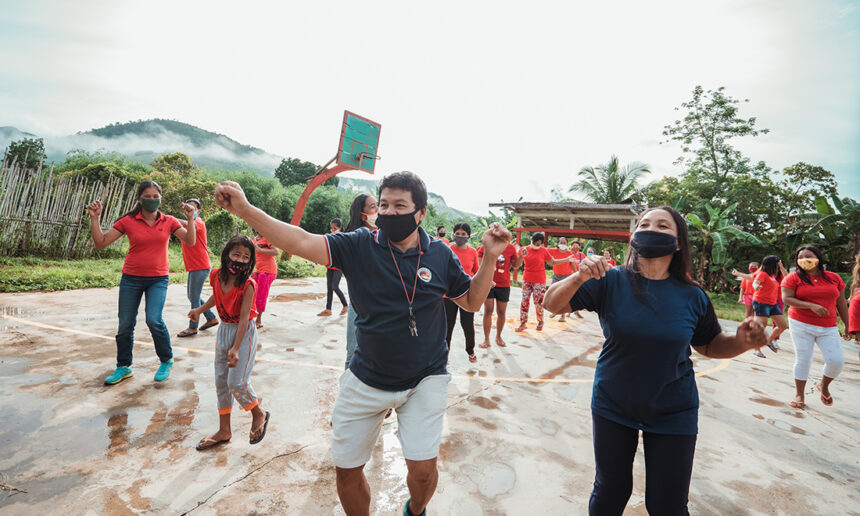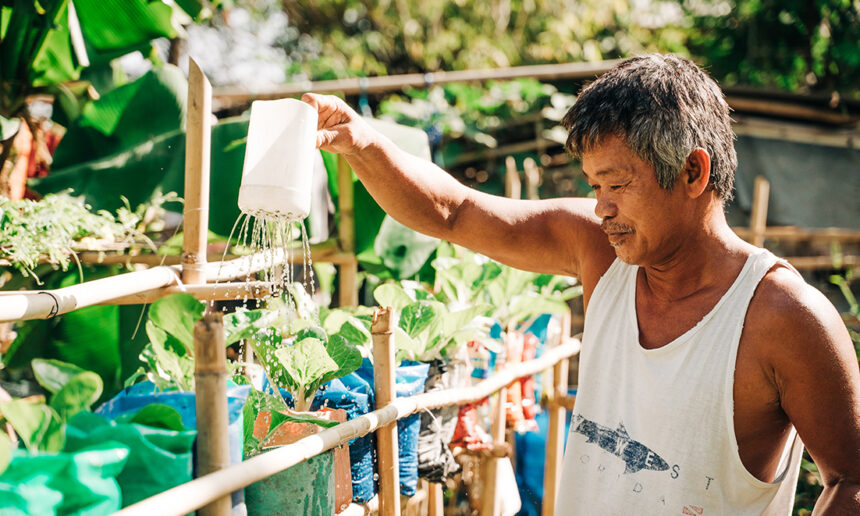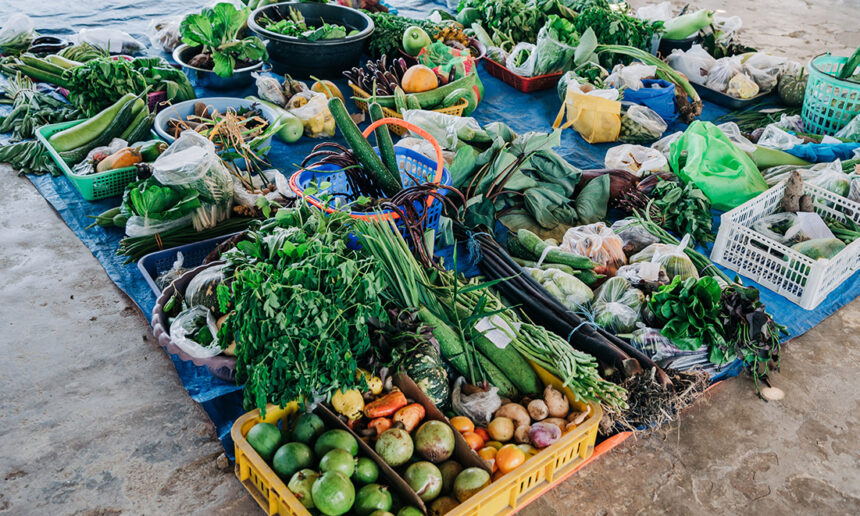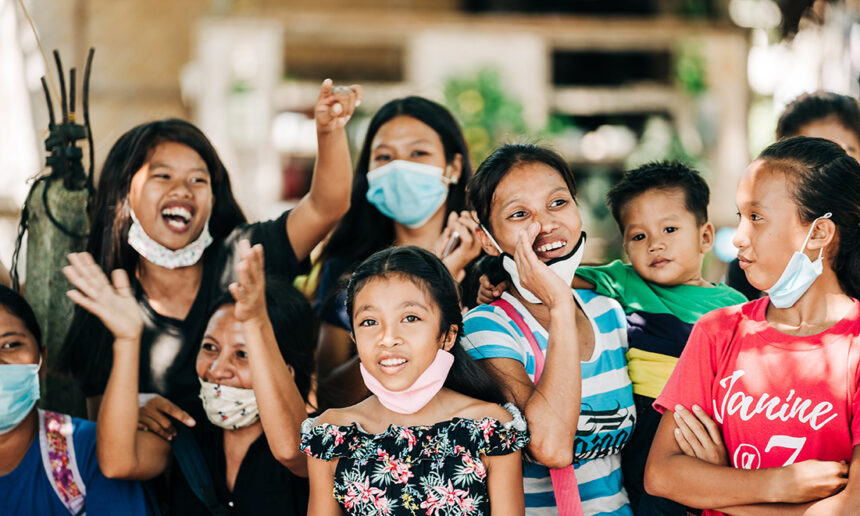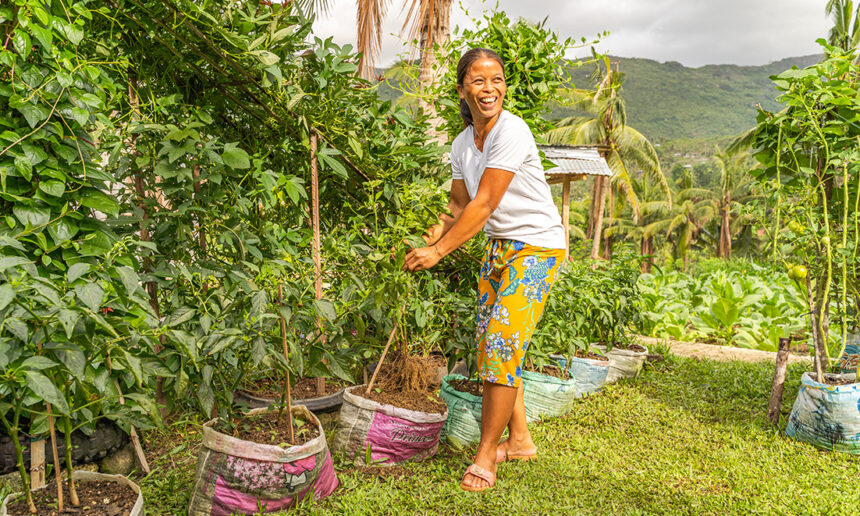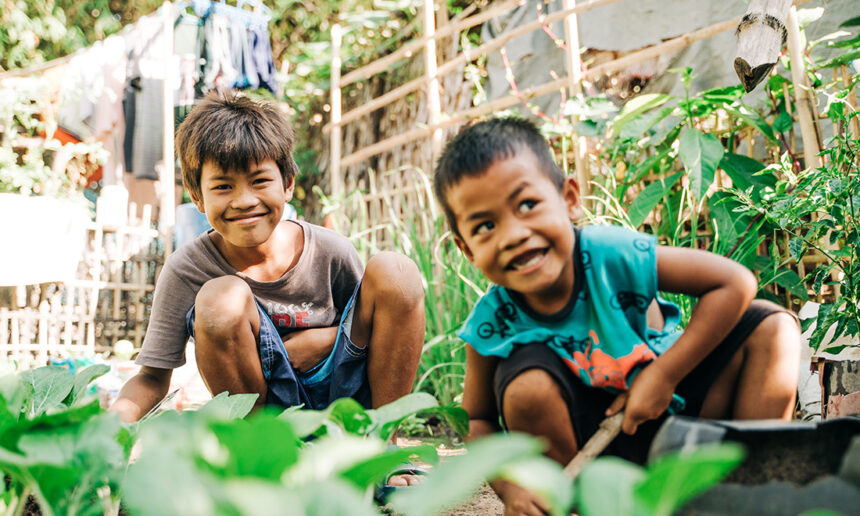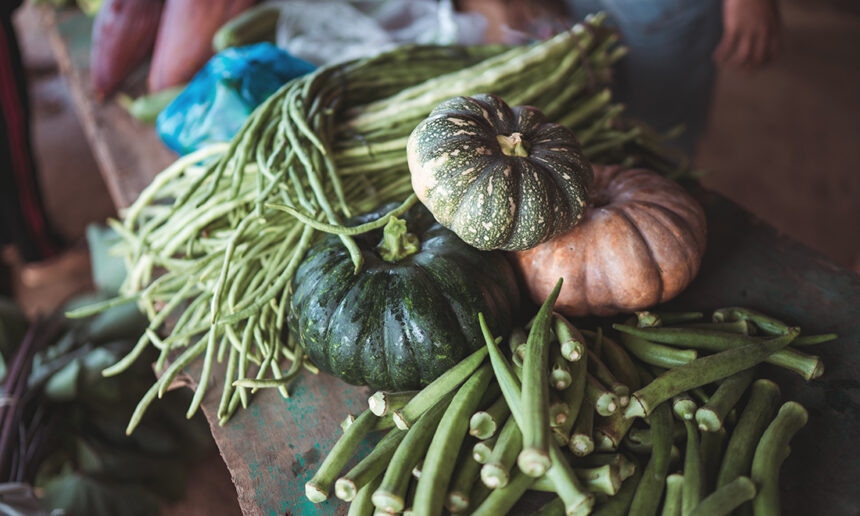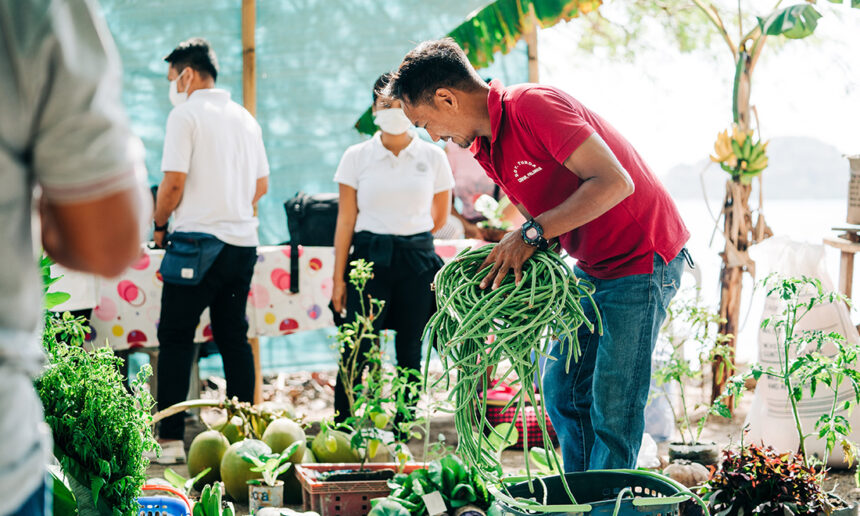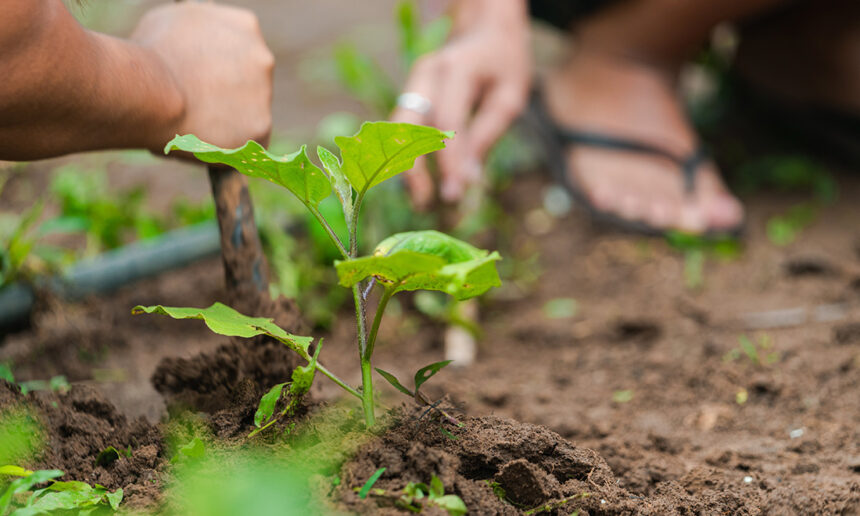Photo: © ARK
Self-sufficiency of Philippine communities through farming in backyards
Ayesha Vera-Yu, with her award-winning organisation ARK (Advancement for Rural Kids) from the Philippines, has shown that it is possible to provide children with a nutritious school meal every day thanks to the help of entire village communities. One million meals have been provided in this way since 2009. With the pandemic, however, ARK had to adapt its approach. The schools were closed and the food situation got worse, not only for the children but for everyone in the villages.
The new approach is called Feed Back: the programme supports entire village communities in a structured way to become self-sufficient. The focus is particularly on rural communities, which are especially affected by poverty and hunger – about 75% of the poor population live in rural areas. Families are encouraged to grow vegetables in their backyards. The vegetables are then traded at community food exchanges. No money is needed. The principle: all participants bring 3 different vegetables from their own gardens and return with 20+ food items. This is enough for 3-4 meals for a family of 4-5 people.
With the idea of the community “vegetable exchange”, ARK is creating a sustainable, self-sustaining solution against hunger in rural areas. The 16-week programme is implemented directly on site. After only five weeks, the first vegetables can be harvested and exchanged. Above all, the whole programme is meant to be fun for the communities, and joint events are organised or additional incentives such as raffles and the chance to win great prizes are offered.
ARK’s programme has four main goals:
- Productive backyards to provide food for families.
- New sources of income through the sale of surplus produce.
- Strengthening the sense of community through joint planning and implementation.
- Long-term self-sufficiency through own products and new businesses.
Feed Back involves the whole local community. It shows that through a common infrastructure, exchange and sale of produce, people can support each other and ensure a sufficient nutrition for all. Half of the costs are raised by the communities, the other half is contributed by ARK – a one-time contribution of about $25 per family.
Project Evaluation
Give us feedback!
How do you like the project? Answer two questions and give us some quick feedback!
Create your own evaluation with the GOOD Scorecard!
By filling out our online scorecard, you provide us with valuable feedback. You can also download the scorecard and evaluate any any project of your choice.
Contribution to the 17 Global Goals
Zero Hunger
Achieving food security on the community level through backyard farming
No Poverty
New sources of income in underserved regions and improved social cohesion
Gender Equality
Empowering women through income model which in particular addresses women
Life on Land
Reduction of chemical fertilizer and pesticides through organic farming in the communities
Responsible consumption and production
Support of a circular economy through decentralized food production
Partnerships for the Global Goals
New forms of partnerships through the vegetable exchange on the community level
Decent Work and Economic Growth
Self-employment accessible for all villagers (e.g. backyard food production)
Good Health and Well-Being
Healthy, regular and well balanced nutrition for all villagers
Reduced Inequalities
The most vulnerable families within a village benefit most from the programme
Video
Images
Photos: © ARK


